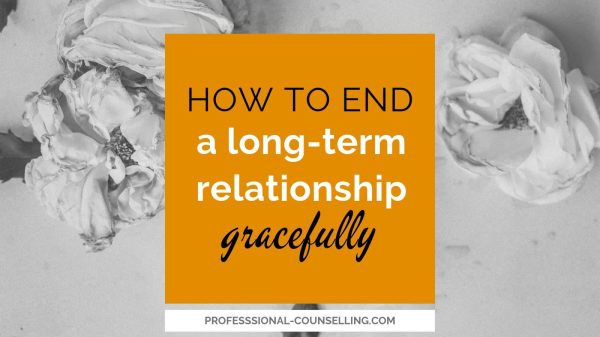In the digital age of dating, where swipes and likes often replace face-to-face encounters, ghosting has emerged as an unsettling, yet common phenomenon. It’s the modern-day equivalent of disappearing into thin air, leaving the ghosted grappling with a myriad of emotions and unanswered questions. While being ghosted can feel like a blow to one’s self-esteem, it doesn’t have to derail your dating journey or confidence. In this article, we will explore strategies to navigate the emotional turbulence of being ghosted, offering insights and tools to help you maintain your sense of self-worth and continue your search for meaningful connections. Whether you’re a seasoned dater or new to the scene, learning how to handle ghosting with grace and resilience is an invaluable skill in the ever-evolving landscape of romance.
Embracing Solitude to Build Inner Resilience
Being ghosted can feel like a silent echo in the vastness of modern dating, leaving you questioning your worth and the signals you thought were clear. Yet, in these moments, embracing solitude can become a powerful ally. Solitude isn’t about isolation but about finding strength in your own company. It’s a chance to cultivate a deeper understanding of yourself, your desires, and your boundaries. When you allow yourself this space, you are nurturing a garden of inner resilience, where self-reflection can blossom into self-assurance. This self-assurance becomes your compass, guiding you through the labyrinth of dating with unwavering confidence.
- Reflect on your experiences: Take time to understand what you’ve learned from past relationships and ghosting experiences.
- Engage in self-care rituals: Prioritize activities that bring you joy and relaxation, whether it’s reading, hiking, or a simple cup of tea.
- Set personal goals: Focus on ambitions outside of dating that can enhance your personal growth and fulfillment.
- Practice mindfulness: Embrace meditation or journaling to center your thoughts and emotions.
Through these practices, solitude becomes not a void but a vibrant space for growth, where you can reaffirm your self-worth and emerge with a fortified sense of confidence ready to face the dating world anew.

Decoding the Silence: Understanding Why Ghosting Happens
In the labyrinth of modern dating, the phenomenon of ghosting often leaves us bewildered, questioning what went wrong. To demystify this silence, it’s essential to recognize that ghosting can stem from a variety of reasons, many of which are not a reflection of your worth. Understanding these motivations can help maintain your confidence and navigate future relationships with a clearer perspective.
- Fear of Confrontation: Many individuals find it challenging to express their feelings, especially when they believe the truth might hurt. Instead of facing potential conflict, they choose silence.
- Overwhelm and Avoidance: Life’s complexities sometimes lead people to retreat into their shells. In such cases, ghosting is a form of avoiding additional emotional burdens.
- Lack of Interest: While it might seem harsh, sometimes the connection simply fades for one party, and they might not know how to communicate this effectively.
- Personal Issues: Unseen personal struggles can make maintaining relationships difficult. It’s crucial to remember that these issues are often unrelated to you.
By recognizing these potential reasons, you can foster a sense of empathy and understanding, empowering you to move forward with resilience and self-assurance.

Reclaiming Your Narrative: Turning Ghosting into Growth
Being ghosted can feel like an abrupt detour in the journey of dating, but it can also be a powerful catalyst for personal growth. Embracing this experience starts with a shift in perspective. View ghosting as a chance to reclaim your narrative, turning an unexpected silence into an opportunity for self-discovery and resilience. Here’s how you can harness this experience for personal growth:
- Reflect on Your Desires: Use this time to assess what you truly want from a relationship. Are there patterns in your dating life that need addressing? This reflection can illuminate your core values and help align your future relationships with your authentic self.
- Enhance Self-Care: Prioritize activities that nurture your mind, body, and spirit. Whether it’s indulging in a favorite hobby, practicing mindfulness, or connecting with loved ones, self-care can fortify your confidence and well-being.
- Reframe the Experience: Instead of internalizing the rejection, recognize that ghosting often reflects the other person’s inability to communicate. By understanding this, you can maintain your confidence and keep your self-worth intact.
By embracing these strategies, you transform ghosting into a stepping stone towards a more confident and empowered version of yourself, ready to engage in dating with renewed clarity and purpose.

Cultivating Self-Assurance: Confidence Strategies for Modern Dating
Experiencing ghosting can feel like an emotional ambush, leaving one grappling with unanswered questions and self-doubt. However, maintaining confidence in the dating realm is not only possible but empowering. Here are some strategies to help you navigate these murky waters with poise and self-assurance:
- Reframe the Narrative: Instead of viewing ghosting as a reflection of your worth, consider it a sign that the connection wasn’t meant to be. This shift in perspective allows you to move forward without the weight of unnecessary self-blame.
- Focus on Self-Care: Prioritize activities that nurture your well-being. Whether it’s indulging in a favorite hobby, engaging in physical exercise, or practicing mindfulness, investing time in yourself bolsters your inner confidence.
- Seek Understanding, Not Closure: It’s natural to desire answers, but often ghosting leaves you without them. Accepting that closure may come from within rather than external explanations can liberate you from dwelling on the past.
- Engage with Your Support System: Lean on friends and loved ones who remind you of your value. Their encouragement can reinforce your self-assurance and provide perspective on the situation.








